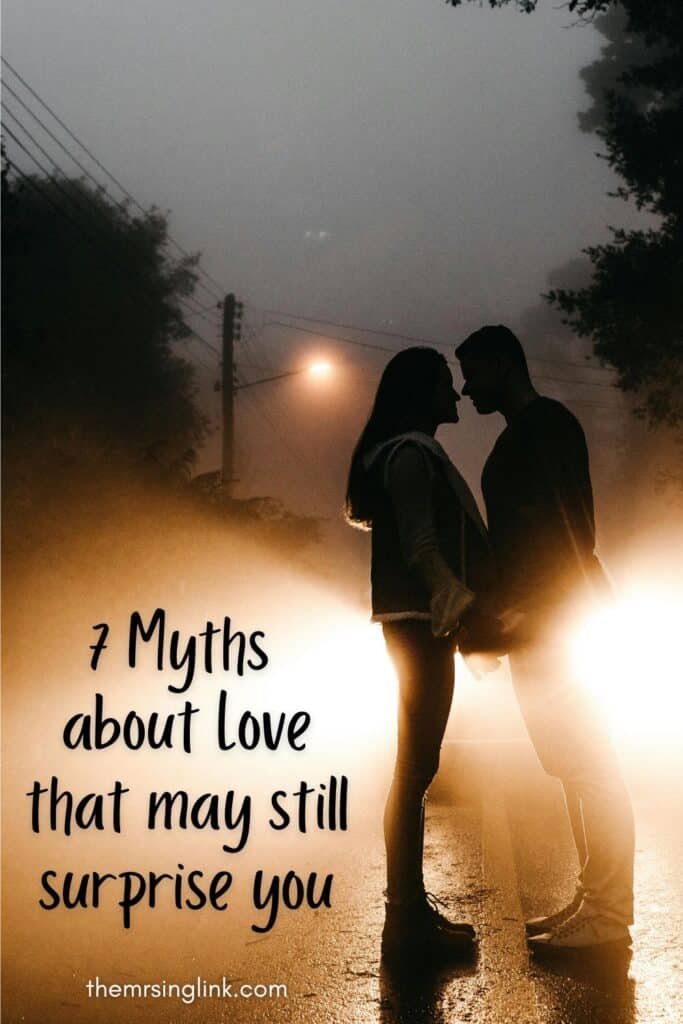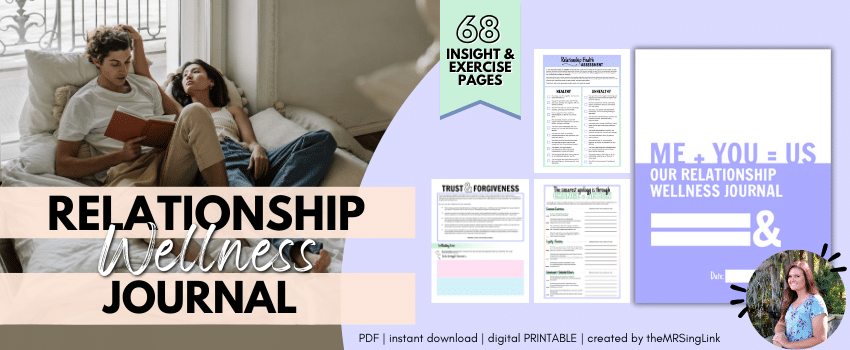What is Love? Many are still asking this same question today, and I think the pendulum is always swinging. Through generations and culture, one day this is Love and the next it’s not. For me, Love is unchanging; it’s people who change. Since we live in a culture where we are constantly bombarded and consumed by the sharing of information and social influence, we’re still bound to be surprised by these common myths about Love.
*As always, the thoughts, opinions and beliefs throughout this post are entirely my own.
In another post I expressed the lies society has made us believe about Love. Personally, I believe *humanity’s* definition of Love is corrupt – it’s been perverted and twisted; it’s fallible. And the only perfect, infallible Love is God’s Love.
True Love simply doesn’t sell. It’s not sexy. True Love doesn’t feed our every passion and desire – it’s not self-serving. Yet our [*humanity’s*] version of Love is one big contradiction. What’s good is bad and what’s bad is good. It’s relative or subjective. So what I consider to be Love won’t be Love to another. All in all, we’re just lost, confused and constantly wandering.
7 Myths about Love that may still surprise you

Love is what’s depicted in movies
I can only hope we know this by now, that movies are far from what Love actually is. Movies may offer a microscopic glimpse that is blown to an explosive scale of fantasy, and even that’s not always healthy or real Love.
So even if that tiny glimpse we fantasize may be genuine to a degree, movies depict a false Love on a macro level. Yet while we likely know deep down the Love depicted in movies are but a myth (a fantasy), we’re still surprised when it goes against our hunger for that false depiction.
Love means you will always be happy
Means as in guarantees? Promises?
Question: does your Love for someone guarantee or promise that they will always be happy? That’s a pretty big heaping commitment, plus one you ultimately don’t have that kind of control of.
I could go into the whole contrast between what it means to be *happy* over what it means to be joyful, but I’ll break it down simply: happiness is a temporary feeling. Just because Love exists, or is a constancy in life doesn’t guarantee unlimited happiness.

Love fixes everything
While I would Love to say this is 100% true, I can’t. First we have to define what it means to *fix* something. To fix something is to repair, absolve, mend or correct something. To fix something also means to secure, establish, settle or make firm.
Then we have to ask ourselves whether fixing something strictly focuses on our own benefit, meaning we get what we want out of it. We can argue, then, that not everything can, will or should be fixed. That sometimes Love actually means walking away, letting go, or even acceptance [for what is]. Because Love doesn’t force, it doesn’t always fix everything.
All in all, the idea that Love fixes everything is entirely unrealistic. Like I’ve mentioned above, I believe “man” has corrupted what Love is and that only God’s Love is perfect (good). Instead, we ought to go in with the hope that Love can fix things – that perfect Love is, in fact, infallible – without writing it off when it doesn’t.
There’s Love at first sight
Myth or personal experience, many will debate. Respectively, you can Love someone at first sight. You should already Love a person – people – without ever meeting them! You Love a person simply by valuing and honoring their existence. Right? No?
So where’s the myth here?
Well, we Love people differently. We differentiate the Love we have for a stranger from that of a friend, family member, and our partner/spouse. We treat them differently. So then, ask yourself, how does this work? Is this a Love that is built and sustained over time, or a Love that is *instant*?
In the case of “Love at First Sight”, we wouldn’t necessarily be talking about platonic or intrinsic Love for a person, would we? It’s obviously much deeper and more intimate than that.
I’m not saying it isn’t possible to have romantic feelings for someone at first sight, but that’s called chemistry. Romantic feelings do not equate to Love, they only differentiate.
Love is easy
It’s easy to Love a person when we feel good, and when they make us feel good. Am-I-right? Does that mean Love is always soft, smooth, feel-good vibes?
It’s easy to Love a person when things are going right, or good. Am-I-right? Does that mean Love is always comfy and convenient?
Love is certainly not impossible, but it is hard because it requires *more* of us. Love is more than a strong desire and attraction, or romantic feelings (as mentioned in the point above). It requires more of us even in times when we don’t feel good, when they don’t make us feel good or even when things aren’t going “right”.
Love means doing the right thing, and that won’t always be the easy thing.
Psst, reads you also may like..
Love is all you need
If we tie in the above point, Love is not easy because it is not enough. Love is simple yet so complex. Simple because we are to Love everyone, all people but it’s also complex because, again, Love requires more [*of us] than just a feeling.
We tend to think that Love alone will make a relationship work. For instance, many will say they Love someone even if they don’t trust them. Or there are those who believe their partner Loves them for simply wanting to be with them even when they continue to be unfaithful. Others say Love ought to be enough even if two people ultimately want different things in life.
If Love is sufficient, then what exactly makes it just that? It begs the question of whether or not Love is being watered down. Remember, you can Love a person by simply valuing and honoring their existence. But is that really all we need in Love?
Is Love just about who you choose to be with (in a relationship)? Or is it simply the feeling of wanting/desiring to be with that person?
If so, then hence for why Love is not all you need.
The elevation of certain or singular aspects of Love (i.e., the love-like feelings) can leave out or even demonize other important factors. Factors that aren’t as comfortable, desirable, easy or that we don’t like associating with Love (you’d be surprised), such as patience, grace, self-control, respect, forgiveness, acceptance, openness, honesty, compassion, compromise, and sacrifice to name a few.
We make the mistake of believing that Love itself is all we need..
..to be happily ever after,
..to keep from fighting,
..to be faithful to our partner,
..to prevent loneliness,
..to make a relationship work,
..to stay together,
..etc..
All that in mind, when our dependence resides in what Love provides or offers us, we are sure to experience disappointment, hurt and doubt. So if you’re solely depending on the idea that Love (i,e., simply your partner’s desire to be with you) is enough (i.e., to make you happy), you will inevitably be proven otherwise.
While Love is a soft place to land in the midst of life’s challenges and obviously brings joy to our individual lives doesn’t mean a house built on sand won’t inevitably sink.

Couples who fight Love each other more
I’m rather gray on the matter of whether couples who fight or couples who don’t fight are more in Love. “Experts” are weighing in on the matter, and while they’re ensuring to validate the fact that all couples fight, they’re also saying couples who fight often are more in Love. Go ahead, google it.
Maybe it’s the word “fight” I struggle with, since their argument is to “fight constructively or effectively”. To me, fighting means one against another; screaming, cursing, physical and/or verbal aggression, vengeance, affliction, outbursts, making threats, and engaging in abusive behaviors. Same for argue, which is combative, so if you look at it’s synonyms they’re not any less brash.
That said, my husband and I have never *fought*. So I guess that means we’re not as in Love or there’s no *spark*. [shrugs] That doesn’t mean we won’t [ever], or that we haven’t had disagreements or considerably heated conflict with emotions involved. But I refuse to confuse or blend the two, or conform to a narrative that says my husband and I should fight [more, a lot] as a testimony to our Love for one another.
While I understand that couples do fight, and the experts make valid points behind their psychology, I’d hate to condone this behavior to be a norm, much less to bless it as Love. While therapists and psychologists are affirming that couples who fight are more comfortable expressing their feelings (as being a positive), they’re not addressing that couples who fight, likewise, are more comfortable disrespecting one another.
What better way than to confuse a couple battling with hot and cold extremes in unhealthy behavior than saying they Love each other more that way.
Again, if terminology is the confusion, then let’s start there. But I stand firm in that fighting does not equate to Love, because you won’t convince me that fighting is comprised of qualities like patience, slow to anger, calmness, mindfulness, resolution, fairness, and solidarity.
Love is without conflict
Make no mistake, I am not contradicting myself on this one. Besides, I never said above that couples never have conflict, confrontation, disagreements or have disputes.
Conflict doesn’t have to constitute as fighting. Conflict can still be emotional. It can be confrontational or argumentative in nature, but neither have to result in altercation.
Love is reflected, undoubtedly, in the way conflict or confrontation is handled. Will this always be perfected? No, but that shouldn’t mean we enable or condone what *feels* the most natural to us, which is to stroke our desire to overreact, interrupt, raise our voices, be right, “clap back”, poke the bear and hit below the belt.
The myth about Love is that it is all rainbows, fluffy bunnies and good feels when it most certainly is not. This point may also reinforce that Love does not realistically exist at first sight, then. Realistically, true Love is tested through trials and hardship. That means conflict is inevitable, because two people are bound to have differences, disagree and make mistakes.
![True Love simply doesn't sell. It's not sexy. True Love doesn't feed our every passion and desire - it's not self-serving. Yet our [*humanity's*] version of Love is one big contradiction.](https://themrsinglink.com/wp-content/uploads/2024/12/myths-about-Love-dating-relationships-and-marriage-advice-pin-2-683x1024.jpg)